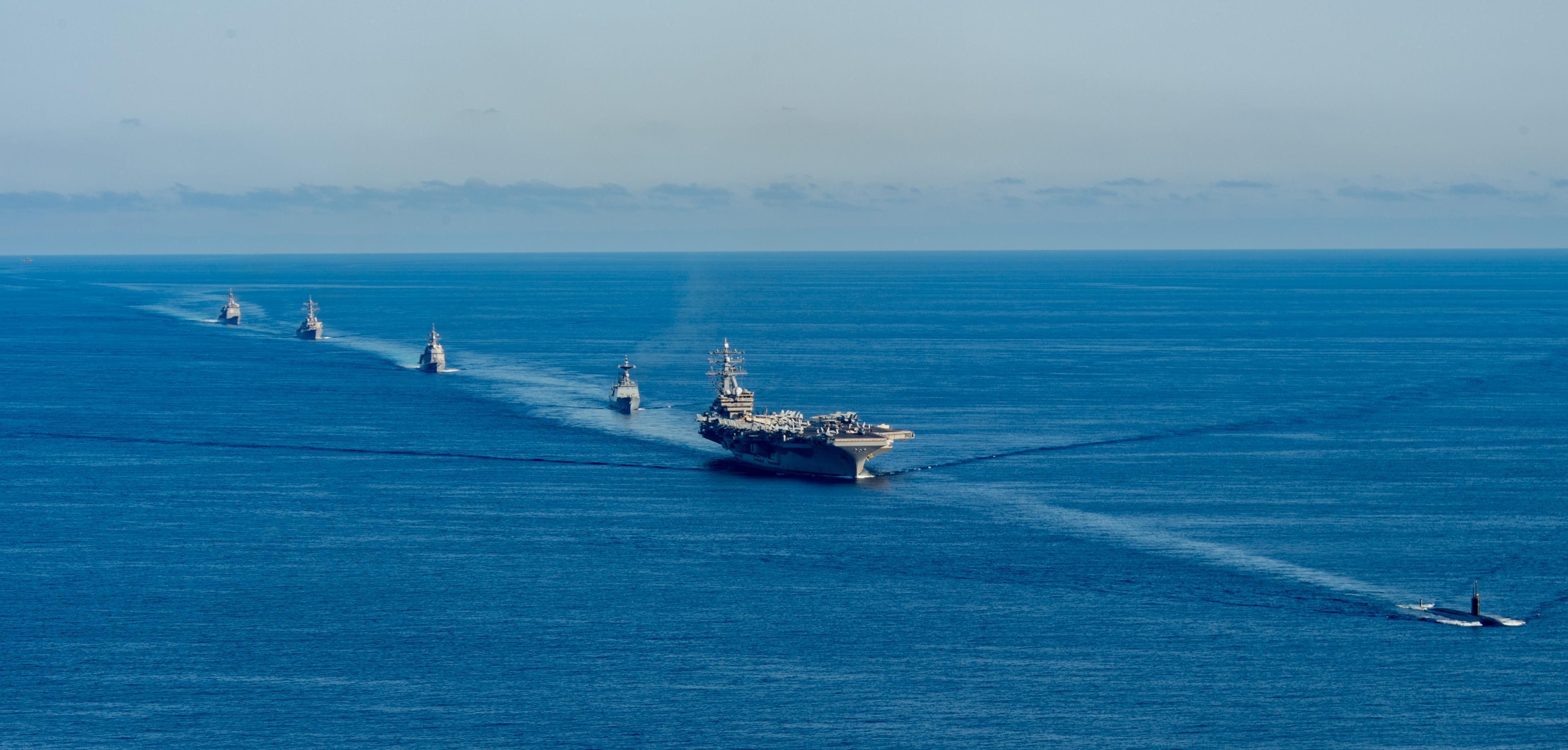
North Korea has fired two short-range ballistic missiles eastwards — its second weapons launch in three days — after the United States redeployed an aircraft carrier to the region and carried out joint military drills with South Korea.
Thursday’s launches were reported by South Korea’s Joint Chiefs of Staff (JCS) and the Japanese government. They followed Tuesday’s test of a suspected intermediate-range ballistic missile (IRBM) over Japan — the first since 2017.
“This is the sixth time in the short period just counting the ones from the end of September,” Japanese Prime Minister Fumio Kishida told reporters. “This absolutely cannot be tolerated.”
The JCS said the first missile was launched from a site near North Korea’s capital Pyongyang at 6.01am (21:01 GMT), with the second 22 minutes later.
In a statement, South Korea’s military strongly condemned the launches and said they were a “clear violation” of United Nations Security Council resolutions. The country’s National Security Council also condemned the launches as an “unacceptable challenge” to the international community and warned of a “stronger response”.
Thursday’s launches took place hours after the US abruptly repositioned its aircraft carrier USS Ronald Reagan to waters off the Korean peninsula — following rare joint missile drills with South Korea — in what South Korea’s military called an attempt to demonstrate the allies’ “firm will” to counter Pyongyang’s continued provocations following the IRBM launch.
Experts said the weapon was probably a Hwasong-12 missile, which is capable of reaching the US territory of Guam in the Pacific, and can carry a nuclear warhead.

The United Nations Security Council began meeting to discuss the IRBM launch on Wednesday — hours before the latest launches — with the US accusing China and Russia of enabling North Korean leader Kim Jong Un by blocking attempts to strengthen sanctions on Pyongyang over its nuclear weapons and ballistic missile programmes.
North Korea does not usually send a representative to the council when the country is being discussed, but its foreign ministry issued a statement saying the launches were “the just counteraction measures of the Korean People’s Army on South Korea-US joint drills”.
It condemned Washington for repositioning the carrier and accused the US and South Korea of “escalating the military tensions on the Korean peninsula” with their recent drills.
The US military’s Indo-Pacific Command, however, reiterated that its commitment to its allies remained “ironclad” and said while Thursday’s launches posed “no immediate threat” to the US, South Korea or Japan they highlighted “the destabilizing impact of the DRPK’s unlawful WMD [weapons of mass destruction] and ballistic missiles programs”.
North Korea has carried out an unprecedented number of missile tests this year — 38 excluding cruise missiles — amid long-stalled nuclear diplomacy with the US. Analysts say the country wants to expand its military arsenal to boost its leverage in future negotiations with Washington and warn it may soon carry out its first nuclear test since September 2017.
Japan and South Korea said Thursday’s first missile flew for about 350km (217 miles) to an altitude of between 80km (50 miles) and 100km (62 miles). The second one covered 800km (497 miles) at an estimated altitude of between 50km (31 miles) and 60km (37 miles).
The launch site was also new, raising suspicions the weapons were fired from a mobile launcher.
Many of North Korea’s most recent short-range ballistic missiles are designed to fly on a lower, depressed trajectory and potentially manoeuvre, complicating efforts to detect and intercept them.
Tokyo lodged a “vehement protest” with North Korea over Thursday’s launches.
“North Korea has relentlessly and unilaterally escalated its provocation especially since the beginning of this year,” Japan’s Defence Minister Yasukazu Hamada told reporters.
Despite Pyongyang’s flurry of tests, there appears to be little prospect of further international sanctions from the Security Council, which Al Jazeera’s UN correspondent James Bays said remained “hopelessly divided” over the issue.
China’s Deputy UN Ambassador Geng Shuang said the council needed to play a constructive role “instead of relying solely on strong rhetoric or pressure.” China and Russia also criticised the US, Japan and South Korea for holding military exercises.
Pyongyang has not yet confirmed Tuesday’s IRBM launch.
Usually, such a high-profile test would be reported in state media with pictures of Kim overseeing proceedings.
“There has not been any mention of it in North Korean media, and Kim Jong Un has not been seen in public for a month,” noted Al Jazeera’s Rob McBride, who is in Seoul.







